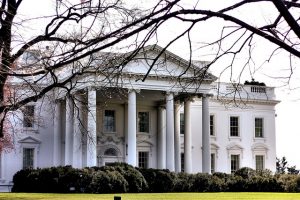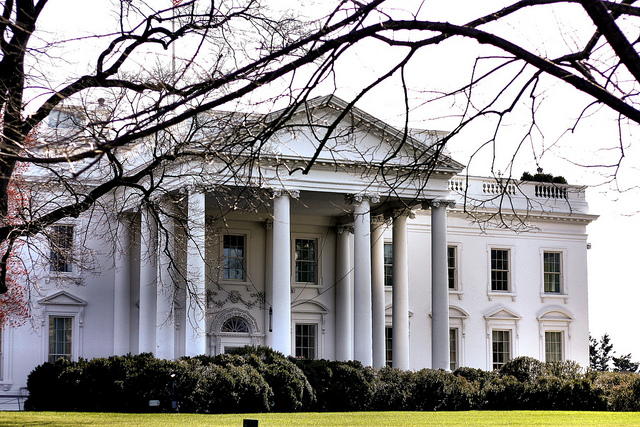By: Mark Rush

When prominent satirist Stephen Colbert mockingly announced his support for President Obama’s impeachment the story that originated with Sarah Palin officially became a major headline. Palin’s initial push to impeach the president occurred with her opinion piece published on July 8, 2014 and has become a frenzy since. A recent poll showed that a third of Americans supported impeachment. Even President Obama’s advisors have spoken publicly about the subject. While House leadership has not seriously considered any impeachment legislation, the publicity is enough to show the path that partisan warfare has taken.
The whirlwind surrounding this talk of impeachment exposes the current political atmosphere we are dealing with. Members of the House of Representatives have at least introduced legislation calling for impeachment for the past five presidencies. For various reasons members of the opposite party publicly pushed for impeachments of Presidents Reagan, George H.W. Bush, Clinton, and George W. Bush. This includes the actual proceedings for President Clinton, for which he was eventually acquitted. Most recently, the House voted to refer impeachment of President Bush to the judiciary committee. Dramatic polarization has plagued our political system since the 1980s and this trend of threats of impeachment underscores the dysfunction all the more. The threats can seldom be taken seriously, but still create more noise to prevent good governance. Dialogue and discourse has broken down to the point that disagreement has turned to animosity and animosity to actions for removal.
The Constitution, while giving specifics on the impeachment process, explains little about the appropriate reasons for an impeachment to take place. Article 2, Section 4 states that “The President, Vice President and all Civil officers of the United States shall be removed from Office on Impeachment for, and Conviction of, Treason, Bribery, or other high Crimes and Misdemeanors.” This has been interpreted differently, depending on the makeup of Congress. The House of Representatives, though, has only formally voted for the impeachment of two presidents: Andrew Johnson and Bill Clinton.
While Clinton’s well-publicized impeachment occurred during our current polarized time, Johnson’s occurred over a century ago in 1868, during Reconstruction, one of the most chaotic time periods in United States history. Clinton’s impeachment resulted from his lying under oath about a personal issue and became a political sideshow. Johnson’s impeachment resulted from very significant policy issues. The House voted to impeach Johnson after he flouted the recently passed Tenure of Office Act. This prohibited the president from removing cabinet members without the consent of the Senate. Johnson fired the Secretary of War, believing the act was unconstitutional. With the margin of one vote in the Senate, President Johnson retained his office. That impeachment was the result of the post-Civil War tension and today’s constant cries for impeachment beg the question of how chaotic and partisan American politics really are in the present.
Calls for impeachment have become almost expected as a tool of partisan warfare today. While Speaker John Boehner has said he disagrees with calls for impeaching President Obama, he has opted for a lawsuit accusing the president of abusing executive power. House Republicans are using this approach, dubbed “impeachment-lite” by the media, to gain political standing. The lawsuit allows Republicans to publicly voice disagreements in court with President Obama without actually working through the gridlocked legislative process. This approach is also less politically risky in House Republican’s eyes because true impeachment proceedings could backfire and result in loss of seats. The Democrats, too, have been using Boehner’s action for political gain. The Democratic Congressional Campaign committee raised half a million dollars off publicity from the lawsuit. Democrats also hope the accusations against President Obama will consolidate support in their base. Now the threat of impeachment has become little more than a page in a partisan playbook. Rather than working together, politicians prefer to eliminate competition. The concept of loyal opposition has lost its meaning in the United States. Neither party respects the other’s philosophical differences, so a job done differently means a job done wrong.
The likeliness that President Obama will be impeached is still very low, but the flurry surrounding it could eventually lead to action. Partisan warfare will continue and future presidents may likely face accusations that call for impeachment. In the short term the frenzy will continue. Fortunately, the American political gives citizens the right to calm the frenzy at the ballot box.


